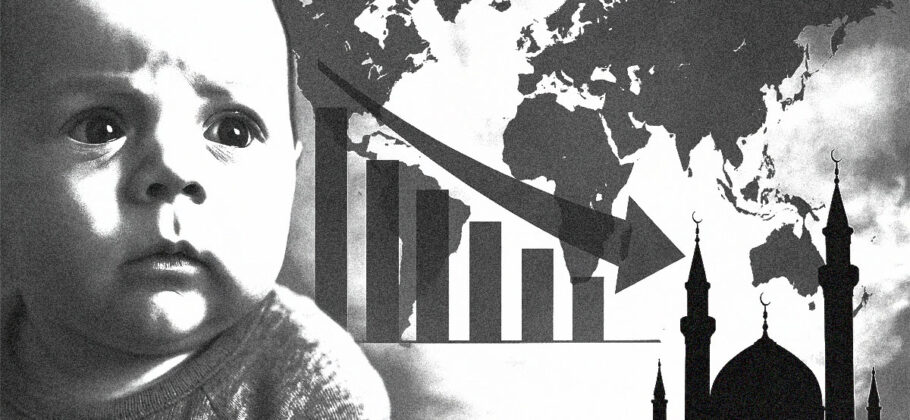A warning ignored for too long
If humanity were threatened by plague, nuclear war, or some catastrophic meteor strike, the world would scramble to act. Yet the threat of our own silent decline—falling birth rates across much of the globe—is being met with shrugs, silence, or outright applause. The Wall Street Journal’s Greg Ip recently described this in stark terms, calling attention to the work of economists Dean Spears and Michael Geruso. Their new book, After the Spike: Population, Progress, and the Case for People, makes a blunt assertion: more people is not just useful for economies, it is good in itself.
“Humanity could hasten its own extinction if birth rates stay too low for a long time,” they write. That is not melodrama. The United Nations reports that global fertility averaged just 2.25 births per woman last year, the lowest in recorded history and barely above the replacement rate of 2.1. Two-thirds of the world now lives in countries where fertility is already below two. Spears and Geruso warn that if fertility sinks to the U.S. rate of 1.6, population will peak at 10.2 billion around 2080 and then begin a relentless slide downward.
The economic and social unraveling
Depopulation is not just a matter of having fewer workers to pay into Social Security or fund pensions. It is about whether societies can sustain themselves at all. Spears explains, “We want to convince our fellow liberals and progressives that… other people’s lives aren’t just good for those people, but for them, too.” In other words, fewer people means fewer minds to innovate, fewer hands to build, and fewer communities with the vitality to thrive.
The ripple effects are everywhere. Consumer demand falls as populations age, real estate markets collapse as there are fewer buyers, and governments drown in the cost of caring for the elderly. As Greg Ip put it, “Solving most problems also involves fixed costs. Developing a vaccine or a smartphone costs the same whether for one person or 8 billion. The bigger the population, the more such investments become financially feasible.” With fewer people, even the economics of invention start to break down.
What the experts disagree on
Some dismiss these warnings. Ronald Lee of UC Berkeley insists that “financial incentives are mostly absurdly small relative to the cost of a child,” pointing to Hungary, which spends 5 percent of GDP on pro-birth measures with little result. Wolfgang Lutz of the Wittgenstein Centre scoffs at the “gut feelings and vague conjectures” of tech billionaires like Elon Musk, who famously declared that “low birth rate is the number one threat to the West.”
Yet others, from Tim Pool to Sam Altman, warn the collapse is already here. “The shoreline is receding and no one understands the tsunami about to hit us,” Pool said. Musk replied that he had been “warning about this since the turn of the century.” While scholars bicker, the numbers are moving in only one direction, and they are moving fast.
The false comfort of environmentalism
One reason the alarm is not taken seriously is that many still live in the shadow of Paul Ehrlich’s 1968 bestseller The Population Bomb, which falsely predicted that mass starvation would result from too many people. Today, activists on the progressive left continue to equate population growth with environmental destruction. But Spears and Geruso counter with hard data: as China’s population grew by 50 million over the last decade, particulate air pollution fell by half. Britain’s carbon emissions per capita have halved since the 1950s. Environmental progress comes from policy and innovation, not from fewer people.
Their most radical claim is moral rather than economic. “It’s better if there is more good in the world,” they argue. “That includes good lives: it’s better if there are more good lives.” If people are healthier and wealthier than ever before, then more of them should be seen as a blessing, not a curse.
The cultural and geopolitical risks
The debate too often stays inside Western borders, where falling fertility is most severe. Italy, Spain, Japan, South Korea, and the United States all face rapid aging and eventual decline. But while the West declines, other populations are booming. Sub-Saharan Africa and parts of the Islamic world continue to grow rapidly. Radical Islam in particular is expanding its footprint in Africa, Asia, and Europe not only through migration but also through sheer numbers.
The cultural implications are enormous. In countries like France, Belgium, and Germany, native-born populations are shrinking while Muslim immigrant populations expand. In Nigeria, fertility remains above five births per woman. If Europe and the West wither demographically while younger, more fervent populations rise elsewhere, the balance of global power will tilt sharply. History teaches that demographics is destiny. An aging, shrinking civilization cannot project strength, while a youthful, growing one can.
This is not simply about economics. It is about which cultures, religions, and values will dominate the future. As one critic observed, Spears and Geruso “see a legitimate problem, but they do not see the ramifications.” The danger is not only fewer Western children but the rapid displacement of Western societies by others who still value large families and cultural expansion.
Searching for remedies but finding none
Governments across the West are scrambling with policies to encourage births: tax breaks, housing subsidies, childcare support. But as Anna Rotkirch of the Population Research Institute in Helsinki notes, “We need new and bolder solutions, which also have to come from employers, city planners, and society at large — not just politicians.” So far, the results are disappointing. Fertility barely budges.
Economists fall back on what they call “opportunity cost.” As Spears explains, people increasingly want to spend their money, time, and energy on things other than children. That may be rational in the short term, but it is catastrophic in the long run.
We have entered an era where Western civilization, for the first time, risks demographic irrelevance. While elites in New York, London, and Brussels congratulate themselves for living greener with fewer children, villages in Africa and communities in the Middle East are bursting with youth. One side is aging into weakness, the other into strength.
This is not an argument for panic, but for recognition. The depopulation bomb is real, and its timer is already ticking. If the West continues to celebrate fewer children as progress, it may soon find itself overwhelmed culturally, politically, and strategically by those who still believe in the power of life.
The choice before us is stark. Either confront depopulation with urgency, innovation, and cultural renewal, or accept that the future will be written by others who simply outnumber us.





